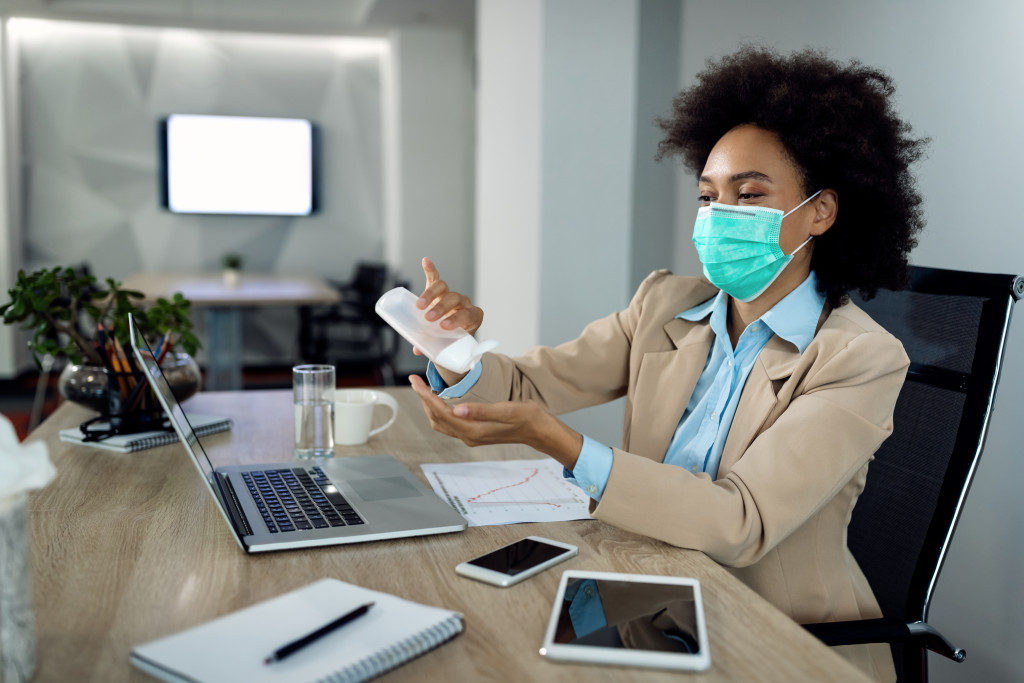In the office, some people’s bad hygiene can be more than just an inconvenience for others. In the light of COVID-19, it can also make way for serious health issues. But even without the pandemic, a lack of proper hygiene can make it easy for contagious illnesses and infections such as the common cold to spread around the office like wildfire.
However, you can’t force people to have good hygiene habits—but you can encourage them. Better yet, you can give them the tools that they need to maintain proper hygiene in the workplace for the health and safety of everyone.
That said, here are some of the best ways to promote good hygiene in the office:
-
Equip toilets with bidets
Most North Americans still use dry toilet paper to clean themselves after going to the bathroom. The rest of the world is using water and sometimes even soap, so why shouldn’t we be doing the same thing here?
Toilet paper does nothing more than removing traces of waste—it does not clean the area. Furthermore, using toilet paper means having one’s hands very near waste and the toilet itself. And, unfortunately, not everyone has the good habit of washing their hands after going to the bathroom.
Installing bidets in office toilets is a great way to reduce the risk of people spreading bacteria everywhere after doing their business. Not only does using a bidet limit the contact between one’s hands and human waste, but it also allows for better clean up down there
-
Put hand sanitizers everywhere
Hand sanitizers may add to overhead expenses, but they would help reduce the risk of illness in the workplace, why not make the investment?
Putting plenty of hand sanitizers around the office will encourage people to clean their hands more frequently. The hand sanitizers themselves serve as visual cues, so even if people aren’t thinking about cleaning their hands, they would most likely use the sanitizer because it’s there.
-
Disallow employees from eating at their desks
There is no real benefit to letting employees eat at their desks. For one, if they have to work while eating, that is not good for their work-life balance. Moreover, letting people eat at their desks would likely lead to cleanliness and sanitation issues.
It is not uncommon for food residue to end up around one’s desk after eating, and since food attracts all sorts of bacteria, there is a good chance that your employees’ desks make great breeding grounds for germs. That said, disallow employees from eating at their work desks. Instead, encourage them to eat at the pantry or even outside the office.
-
Be more lenient with sick days

If your employees are afraid to ask for sick days, they would most likely show up to work despite being ill. Apart from being a major HR issue, this also increases the risk of sick employees spreading their illness to others in the office. So, instead of being one person down, the rest of the team is sick as well.
To avoid this, be appropriately lenient with sick days. Encourage employees to take the day off if they feel sick, and don’t make it feel like they’re doing something wrong in doing so. Furthermore, you can also consider letting them work from home if they feel well enough so that they don’t have to use their sick leave.
-
Provide anti-bacterial wipes
Encourage employees to keep their work areas clean by providing anti-bacterial wipes in the office. This way, they can easily clean their desks, seats, keyboards, computer mice, and other personal items without having to wait for the maintenance staff to do it for them.
Anti-bacterial wipes also make a great addition to the bathroom. Toilet seats are hotspots for germs, but by wiping them down before use, your employees can feel much safer and cleaner every time they go to the bathroom.
-
Educate employees
Educating employees about proper hygiene seems unnecessary in a workplace full of adults, but it may be just what you need to get the point across. Important topics to touch on include:
- Handwashing
- Maintaining a clean desk
- Disposing of the trash properly
- Handling illnesses
- Leaving the toilet clean for the next person
- Eating in appropriate places
- Using communal spaces properly
- Avoiding food contamination in the pantry
- Sanitizing personal work items
Maintaining good hygiene in the office helps prevent the spread of illnesses, reduce sick days, improve employee productivity, and increase everyone’s self-awareness. Starting with these tips, you can improve employees’ personal hygiene by giving them the tools and knowledge that they need to do so.

